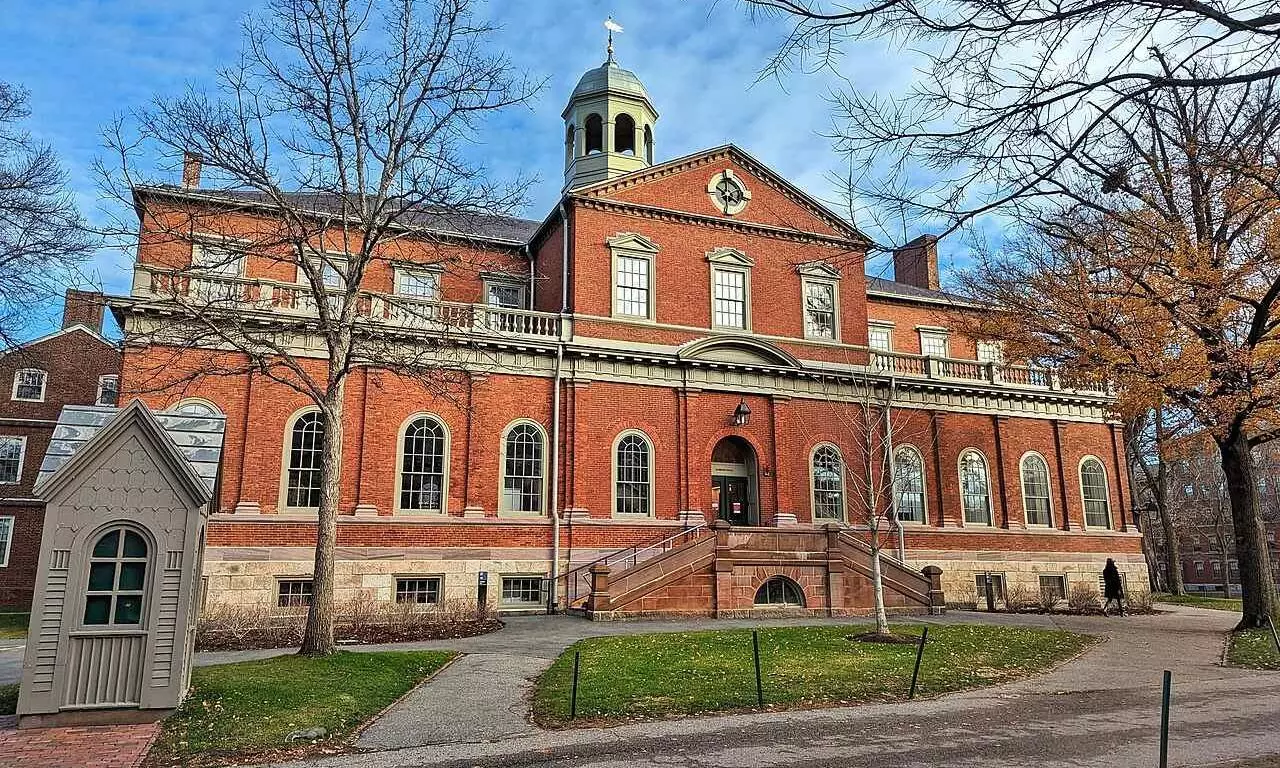
What does Trump's crackdown on Harvard University mean for foreign students?
The decision to revoke Harvard's authority to enroll foreign students puts at risk the futures of nearly 6,800 international students, including 788 students from India

US President Donald Trump’s administration, escalated its standoff with Harvard University on Thursday (May 22), revoking the University’s authority to enroll international students.
The move, announced by Homeland Security Secretary Kristi Noem, will strip the school of its ability to admit foreign students from the 2025–26 academic year. The action follows Harvard’s refusal to comply with requests from the Trump administration to produce records about its foreign students.
The decision directly puts at risk the futures of nearly 6,800 international students at Harvard, including nearly 800 students from India, as these students are now required to either transfer to other certified institutions or risk losing their legal visa status in the United States.
Also Read: Trump administration bars Harvard from enrolling foreign students
Reason for revocation
The Trump administration took this latest step to revoke Harvard University’s Student and Exchange Visitor Program (SVEP) as it refused to comply with requests to produce records about its foreign students, Homeland Security Secretary Kristi Noem said in a letter.
Noem accused Harvard of “perpetuating an unsafe campus environment that is hostile to Jewish students, promotes pro-Hamas sympathies and employs racist diversity, equity and inclusion' policies.” In a post on X, Noem accused Harvard of "fostering violence, antisemitism, and coordinating with the Chinese Communist Party on its campus."
This move is part of an ongoing conflict between Harvard and the Trump administration that started in early April after the former refused to comply with the government's demands to limit pro-Palestinian protests and eliminate diversity, equity and inclusion policies.
Federal agencies like the Department of Homeland Security and the National Institutes of Health have since ceased university grants.
Can Harvard reverse the ban?
Harvard has condemned the Trump administration's move as unlawful and detrimental to its academic mission. The university is also exploring legal avenues to challenge the decision and added that added it is “working to provide guidance to affected students.”
The Trump administration has given Harvard 72 hours to produce the requested documents and meet other demands if it hopes to restore its SEVP status. The demands include “disciplinary records for international students, plus any audio and video recordings of protest activity.”
There is also a possibility that the Supreme Court might step in to review or block the government’s decision. Meanwhile, affected students will also seek legal and academic advice on their next steps.
Also Read: Trump admin freezes grants for Harvard until it meets White House demands
Indian students hit
According to Harvard's records, between 500 and 800 Indian students and scholars are enrolled each year across its various schools and departments. At present, 788 Indian students are currently studying at Harvard, mostly in graduate-level programmes.
With the Trump administration's action, these students must now transfer to another SEVP-certified institution if they intend to remain legally in the United States. Failure to do so could result in visa revocation and potential deportation.
Many Indian students are enrolled in long-term doctoral or multi-year graduate programmes, and transferring mid-course could be academically disruptive. With this latest move by the Trump administration, students have limited time to explore alternatives.
Is it legal?
The US government has authority over who comes into the country. The Department of Homeland Security has the authority to certify or decertify universities under SEVP.
Institutions must meet certain legal and operational standards, and “it is a privilege, not a right, for universities to enroll foreign students,” Noem emphasised. The program gives colleges the ability to issue documentation to foreign students admitted to the schools. Then, the students apply to obtain visas to study in the United States.
While institutions have been removed from the SEVP list in the past, such actions have typically been reserved for serious administrative lapses such as loss of accreditation, lack of qualified faculty, or closure of the institution. Experts say the present action against Harvard is without precedent.
Also Read: Harvard sues Trump administration over freeze of $2-billion grants
What happens next?
Students who completed their degrees this semester will be allowed to graduate. Noem's letter said the changes would take effect for the 2025-2026 school year. That means students graduating in 2025, like Harvard's Class of 2025, which is set to conclude next week, can still have their degrees conferred to them.
However, international students who have yet to complete their degree need to transfer to another university, or they will lose their legal permission to remain in the US. Also, students who were about to attend Harvard in the fall of 2025 will no longer be permitted to do so unless the government reverses its decision or if a court steps in.
Noem said Harvard could regain its ability to enroll foreign students if it complied with a list of demands within 72 hours.
Students face uncertainty
There is widespread uncertainty and fear among the students. One student told AFP, “Everyone’s panicking a bit.” Another said, “It’s scary and it’s saddening... getting into the school has been the greatest privilege of my life.”
Noem warned that other institutions could also face the same fate. “Absolutely, we are” considering similar actions at other institutions, she said, citing Columbia University as a possible next target.
Also Read: ‘Harvard has set an example’: Obama, on varsity’s rejection of federal demands
Beyond individual cases, the decision could severely impact US higher education’s global reputation. International students contribute significantly to tuition revenue. The administration has also cut billions in federal research grants. One analyst called the latest action “just another financial hit on top of several hits that have already come for big research universities.”

